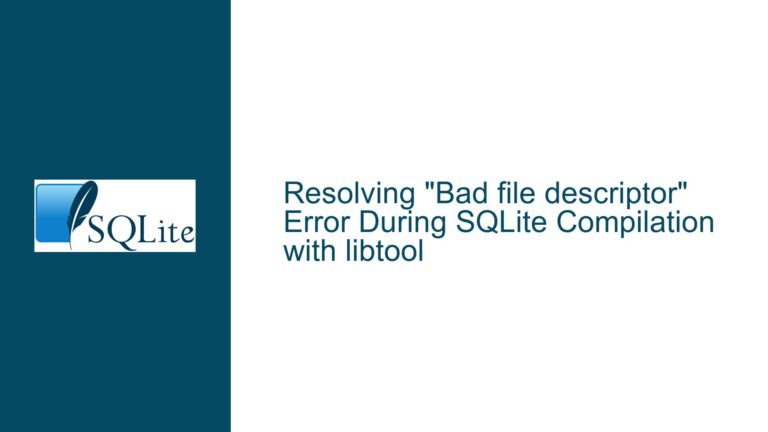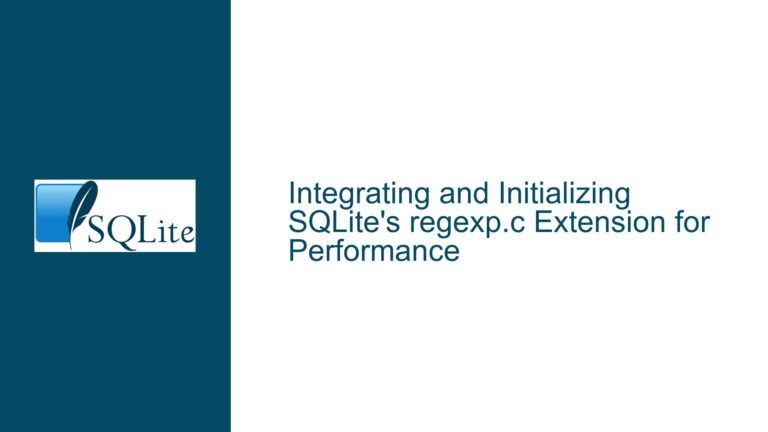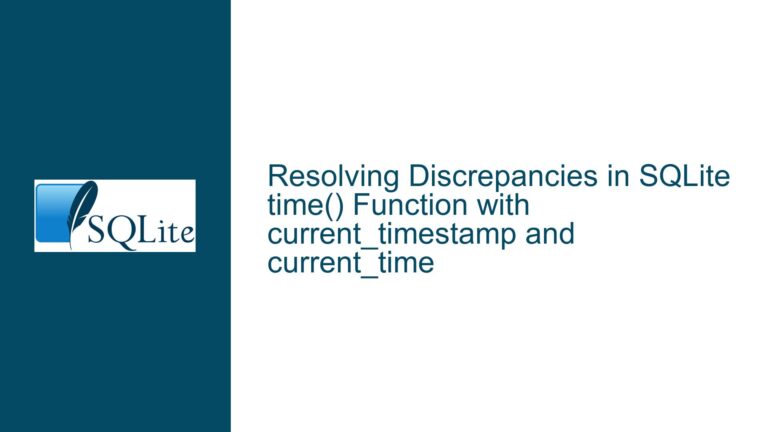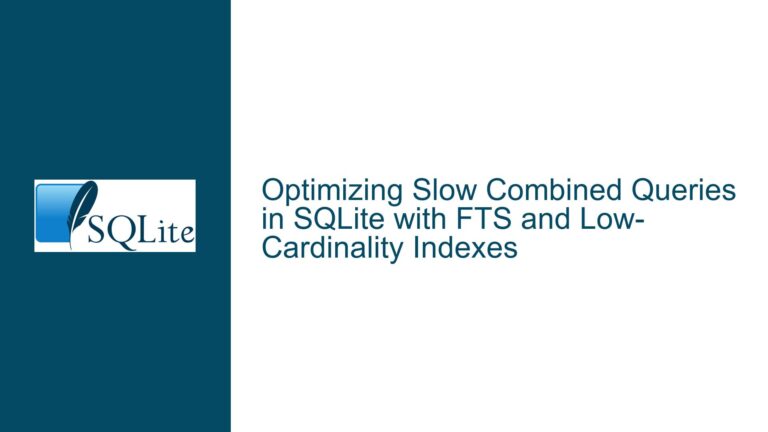Optimizing Fuzzy Deduplication Performance in SQLite for Large Datasets
Understanding Fuzzy Deduplication Challenges in SQLite Environments Fuzzy deduplication involves identifying near-duplicate records in datasets where exact string matches don’t exist. This operation becomes computationally intensive at scale due to the inherent complexity of comparing every record against all others using similarity metrics. The core challenge lies in balancing accuracy with performance when dealing with…









